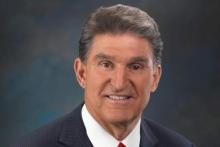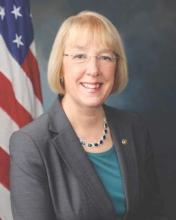Dr. Robert M. Califf was confirmed as Commissioner of the Food and Drug Administration by an 89-4 vote of the full Senate on Feb. 24.
Physician associations praised the Senate’s confirmation, calling Dr. Califf a strong voice in the cardiovascular community who will bring valuable perspective to the FDA role.
“Dr. Califf is an acclaimed leader in the cardiovascular community who brings impressive medical knowledge, clinical research experience and leadership capabilities to the FDA,” Dr. Kim Allan Williams Sr., American College of Cardiology president, said in a statement. “He has made important contributions to the field of medicine and has the vision required to lead the FDA in its efforts to promote and protect public health.”
Dr. Califf has served as FDA deputy commissioner for medical products and tobacco since February 2015. He is a former vice chancellor of clinical and translational research and professor of medicine in the division of cardiology at Duke University, Durham, N.C. He served as director of the Duke Translational Medicine Institute and founding director of the Duke Clinical Research Institute. Dr. Califf has led countless landmark clinical trials and is one of the most frequently cited authors in biomedical science, with more than 1,200 publications in the peer-reviewed literature, according to his biography on the FDA website.
The New England Journal of Medicine endorsed Dr. Califf’s nomination in an editorial published online in October 2015. They noted that Dr. Califf’s experience with clinical trials and drug data should be considered advantages to the FDA and would further the agency’s aim to improve drug safety (N Engl J Med. 2016 Jan 14; 374:176-7).
“Califf’s experience, his proven leadership abilities, his record of robust research to guide clinical practice, and his unwavering dedication to improving patient outcomes are unsurpassed qualifications for the post of commissioner of the FDA,” according to the editorial signed by Dr. Jeffrey M. Drazen, editor in chief.
Dr. Califf’s nomination was contested by legislators including Sen. Bernie Sanders (I-Vt.), who opposed Dr. Califf’s ties to the pharmaceutical industry. Dr. Califf is founding director of the Duke Clinical Research Institute, which has conducted extensive clinical trials for the drug industry. Dr. Califf, in the past, disclosed receiving consulting fees from pharmaceutical manufactures.
Sen. Joe Manchin (D-W.Va.) and Sen. Edward Markey (D-Mass.) also opposed the nomination. They, however, said they wished to block Dr. Califf’s nomination because they believe the FDA is failing to adequately regulate opioids entering the U.S. market. Sen. Manchin and Sen. Markey were joined by Sen. Kelly Ayotte (R-N.H.) and Sen. Richard Blumenthal (D-Conn.) in voting against Dr. Califf.
“The FDA is supposed to be our nation’s pharmacist, but right now, it is prescribing dangerous and addictive painkillers without limits, without supervision and without consequence,” Sen. Markey said in a Feb. 22 statement. “We need the leader of the FDA to be a tough cop on the beat, not a rubber stamp approving the latest Big Pharma painkillers that are the cause of this deadly scourge of opioid addiction and overdoses.”
On Feb. 4, Dr. Califf called for a sweeping overhaul of the FDA’s approach to opioid medications, including renewed efforts to improve how opioids are approved, labeled, and prescribed. Under the new plan, the FDA will convene an advisory committee before approving new drug applications for opioids that do not have abuse-deterrent properties and develop changes to immediate-release opioid labeling. The agency also plans to expand access to abuse-deterrent formulations of opioid products and improve the availability of naloxone and medication-assisted treatment options for patients with opioid use disorders.
“Things are getting worse, not better, with the epidemic of opioid misuse, abuse and dependence,” Dr. Califf said in a statement. “It’s time we all took a step back to look at what is working and what we need to change to impact this crisis.”
Just prior to the full Senate vote, Sen. Patty Murray (D-Wash.), ranking member of the Health, Education, Labor, and Pensions Committee, spoke in support of Dr. Califf’s nomination.
“After careful review, I believe Dr. Califf’s experience and expertise will allow him to lead the FDA in a way that puts patients and families first and upholds the highest standards of patient and consumer safety,” Sen. Murray said on the Senate floor. “Dr. Califf has led one of our country’s largest clinical research organizations and has a record of advancing medical breakthroughs on especially difficult-to-treat illnesses.”
Senators opposing Dr. Califf’s nomination attempted to filibuster the body’s consideration and vote on Dr. Califf’s nomination on Feb. 22. Their efforts were voted down 80-6.




